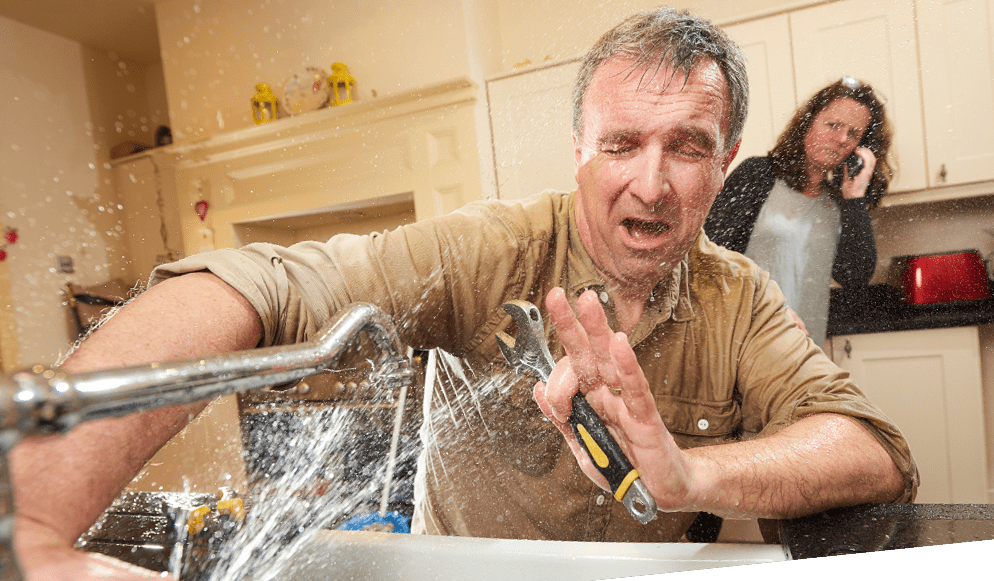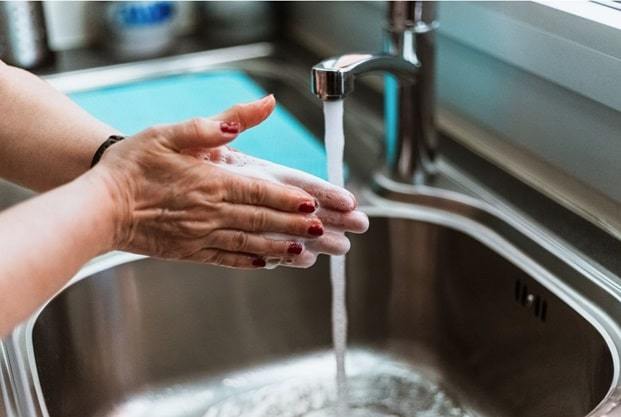Ways to Fix Emergency Plumbing with Quick Solutions Until Help Arrives
Ways to Fix Emergency Plumbing with Quick Solutions Until Help Arrives
Blog Article
The article author is making a number of great points about Plumbing Emergencies: Tips on What To Do Before as a whole in this post beneath.

Plumbing emergencies can strike at any moment, causing tension and potential damage to your home. Whether it's a ruptured pipeline, a stopped up drainpipe, or a leaking faucet, knowing how to take care of the scenario up until a professional plumbing professional shows up can save you from further difficulties. This write-up supplies vital emergency pipes ideas to assist you mitigate damages and gain back control during a pipes situation.
Shut off the Water
The very first step in any type of plumbing emergency situation is to turn off the supply of water. For local problems, such as a leaking tap or bathroom, turn off the valve near the fixture. When it comes to a major leak or ruptured pipeline, find your home's major water shut-off shutoff and turn it off immediately. Recognizing the place of these valves ahead of time can save valuable time throughout an emergency.
Address Tiny Leakages with Temporary Solutions
Little leakages can swiftly come to be significant troubles if left untreated. Make use of these short-term fixes up until professional aid arrives:
While these repairs aren't permanent, they can help lessen water loss and damage.
Unclog Drains Securely
A blocked drainpipe can be a frustrating and untidy concern. Here's exactly how to tackle it:
If these techniques don't function, avoid utilizing too much force, as it might worsen the obstruction.
Take Care Of Overflowing Toilets
An overruning bathroom can trigger immediate mayhem. Below's what you should do:
Shut down Your Hot Water Heater
In specific emergencies, such as a burst pipe, it's smart to turn off your hot water heater. This protects against getting too hot or damages to the device when water stops flowing. Shut off the power supply to the water heater (electrical or gas) and allow it cool to stay clear of possible hazards.
Temporarily Stop a Burst Pipe
A burst pipe can result in considerable water damages in mins. To alleviate the concern:
Call an expert plumbing technician right away to deal with the problem permanently.
Take Care Of Frozen Piping Meticulously
In chillier climates, frozen pipes are a common emergency situation. If you believe an icy pipeline:
Protect against More Damages
Taking quick action to lessen damage can save you money and time in the future. Right here's how:
. Have an Emergency Situation Pipes Set
Prepare a fundamental plumbing emergency situation set to manage minor issues properly. Your set ought to include:
Having these devices handy can make a considerable distinction in your capability to manage emergencies.
Know When to Call a Specialist.
While quick fixes can aid briefly, specific plumbing issues call for instant expert attention. Call a plumber if:.
Promptly calling a professional makes sure the issue is solved correctly and prevents more complications.
Final thought.
Pipes emergencies can be overwhelming, yet with the best expertise and tools, you can take care of the situation successfully until assistance arrives. By shutting off the water, dealing with tiny leaks, and utilizing temporary repairs, you can decrease damages and keep your home safe. Bear in mind, these tips are short-term options; constantly consult a qualified plumber to manage the origin of the problem. Preparation and fast reasoning are your best allies in any type of pipes emergency.
8 Helpful Tips for Managing Plumbing Emergencies at Home
If your plumbing system hasn’t failed once, wait for it because almost everyone has a story to tell. Sometimes, it could be simple emergencies such as a leaking pipe, a blocked cistern, or even a big burst pipe. In situations like this, you need to have some handy tips to save you some money and from possible damages.
Take care of minor issues early.
Sometimes, you could have avoided an emergency by taking proactive measures while it was still early. Some major plumbing emergencies can be a result of an ignored minor issue. We recommend that you have items like plumbing tapes and other related items. A plumbing tape can allow you to manage minor leaks before the plumber arrives.
Cut off the water supply.
This tip is essential in almost any type of leakage problem. For problems like minor leakages in the toilet or kitchen, turn off the supply that takes water to the affected pipes. If the leakage is a major pipe, you must shut off the supply valve to the entire building. This will help you avoid flooding your home and neighbors if you share a flat.
Know your plumbing system
Folks typically move into a new apartment without understanding the water supply around the building. This can prove disastrous if a water emergency arises and the plumber is far away. The previous tip will prove useless if you don’t practice this one. More importantly, know where your water shut-off valve is located – you’ll need that knowledge to prevent potential home floods.
Have some common handy tools
There are lots of plumbing emergencies that you can handle without hiring a plumber. That’s why you must keep some tools available always. Some tools that you can use to fix simple plumbing emergencies easily include plumbing tapes, screwdrivers, thread seal tapes, plungers, pliers, tape measures, and rubber gloves.
Insulate your pipes from cold
You’ll save yourself from many plumbing expenses if you protect your water pipes from the cold. This is because of the harmful effects that cold weather can have on your pipes. During winter, your pipes can burst from being overly expected to freezing temperatures. So, make sure insulators are there to keep the pipes working correctly.
Avoid practices that will clog your toilet.
Many people indulge in practices that can damage the plumbing system of the entire building. One of these is when they use their toilet to dispose-off garbage. They flush all kinds of things, such as paper towels, bandages, hairs, female sanitary products, etc., down the toilet. This will block your toilet in the long run, incurring unnecessary expenditures. Dump such waste in the trash instead.
Check your dials regularly.
Sometimes, there could be leakages in your home without noticing them in time. So, constantly monitor your water meter dial. If the dial is reading when there is nobody using water, this is an indicator that there is leaking. Check for leaks immediately. Call a plumber as soon as possible if you can’t find any.
https://www.constructionplacements.com/8-helpful-tips-for-managing-plumbing-emergencies-at-home/

I found that write up on Plumbing Emergencies: Tips on What To Do Before when doing a lookup on the web. In case you appreciated our blog entry please make sure you remember to share it. Thanks for your time spent reading it.
Schedule And Pricing Report this page